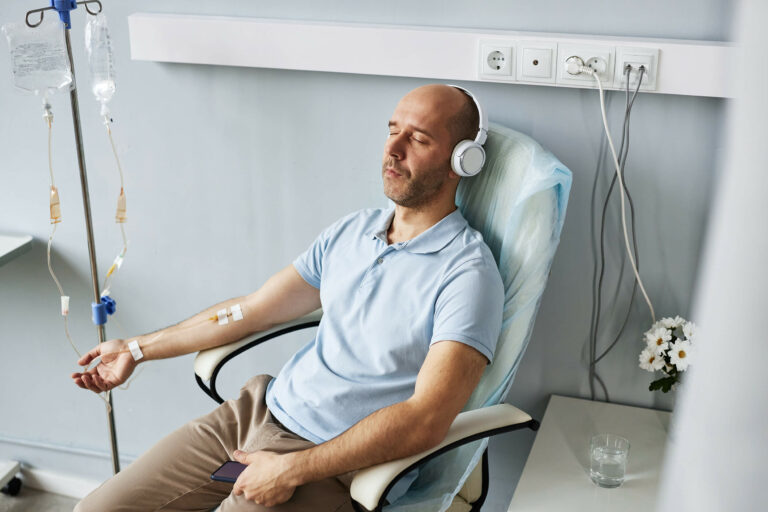By: Scott Stout, MedVector Think of the biggest medical breakthroughs of the modern era. Anything you can name, from the end of smallpox to the recent development of COVID-19 vaccines, owes its existence to clinical research. Clinical research uncovers new or improved treatments for both rare and common conditions, and clinical trials confirm their efficacy and safety in humans. Both clinical research and clinical trials are essential for moving medicine forward, saving lives, and increasing quality of life for you, your loved ones, and your community. By understanding what clinical research is, why it matters, and how to break down barriers to participation, you can become part of this essential process of discovery. And why should you consider it? Participating in a clinical trial can help improve the health of people everywhere, and it’s easier than you may think. What Is Clinical Research? Clinical research is a scientific process that examines new treatment options and/or new observations about health and illness in people. Clinical research can also include observational studies. These studies look at medical data and/or biological samples, but do not test new treatments. Then, through clinical trials, researchers confirm potential benefits and identify risks of new drugs and therapies before making them available to the public. The clinical trial process happens in phases. Every step of the way, researchers must follow strict standards to prove efficacy and patient safety. Once a clinical trial demonstrates a new treatment is safe and effective, patients everywhere can begin to access its benefits. Why Are Clinical Trials Important? Clinical trials are the backbone of medical progress. They take discoveries from the lab into practice, bringing the latest developments in medicine and technology to communities like yours. Without clinical trials, medicine simply couldn’t evolve, and, more importantly, treatments that save and improve lives wouldn’t be able to reach the people who need them. How You Benefit From Clinical Trials The benefits of clinical trials for science as a whole are clear, but what about the benefits for people who participate in these trials? Clinical trial participants benefit in many ways. You: Barriers to Clinical Trial Accessibility If clinical trials are so essential, why have 91% of Americans never participated in one? Some barriers to trial access and participation include: But what if the doctors you already know and trust could offer clinical trials as a care option? Even considering the barriers to clinical research, studies suggest 75% of patients would participate in a clinical trial if it were recommended by their doctor. Knowing this, an obvious conclusion to patient-centric participation in clinical research is … our doctors. However, not all doctors want to get involved in research, and the ones that attempt to do so typically stop. Underenrollment, paperwork, and strict compliance guidelines create additional work, requiring doctors to dedicate a significant portion of their resources to keep running trials, let alone be profitable. Why Don’t Doctors Just Refer Their Patients to Clinical Trials? In a perfect world, doctors would refer their patients into clinical trials, but even after addressing the awareness problems, several factors prevent this: Clinical Trials as a Care Option We know that patients want to hear about clinical trials from their trusted doctors, but current avenues to provide access are not ideal: either become an investigator or refer a patient (customer) to another doctor. So how do we bridge this gap and align the interests of patients, clinical trial sites, and treating physicians? A decentralized clinical trial (DCT) gives patients access to clinical trials from alternative locations, such as their home or local clinic, but in an industry that values “caution” over “innovation,” the process of putting DCTs into practice has been painfully slow. At the peak of the COVID-19 pandemic, telemedicine, a decentralization tool in the telehealth family, became common practice and has continued to be widely used. Telehealth is the delivery of health care services or monitoring by video, messaging, or other options that don’t require a physical visit to a doctor’s office. A unique benefit for clinical research is that telehealth enables a patient to be in two places at once: physically at their doctor’s office, while virtually at a clinical trial site. This concept allows patients to access advanced medicines from a variety of locations including, not only treating physician’s offices, but also local labs or pharmacies. Even more importantly, by enabling treating physicians to “host” clinical trial appointments from their local practice, it reduces the referral concerns of patient leakage, lost revenue, and control of care. Under this model, patients have increased access to research while their doctors become part of the referral, continuing to be the primary caregiver for the patient. Get Involved in Clinical Research If you’re a patient interested in moving the needle toward clinical research as a care option, you can start by talking to your doctor. Ask them if they’re familiar with clinical trials and if they’re aware of the new technologies bringing them to local communities like yours. Even if they aren’t currently involved in research, this question could spark your doctor’s natural curiosity and pave the way for future access to new care options, which is good for everyone! Our website also has a variety of resources for you to explore, including tools to search for trials near you. As clinical research continues to evolve and become more accessible, you can help be part of the future of medicine by getting involved.





